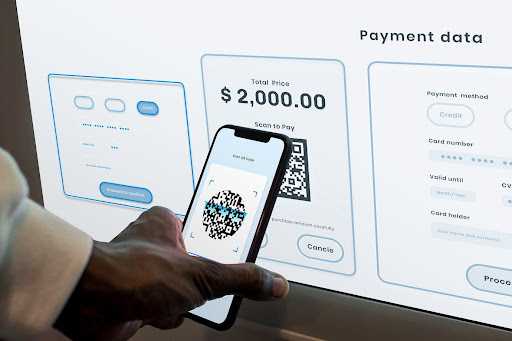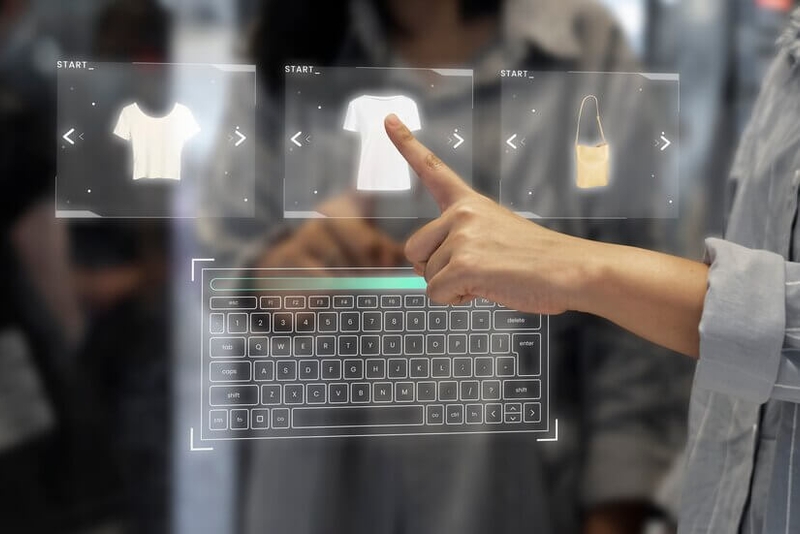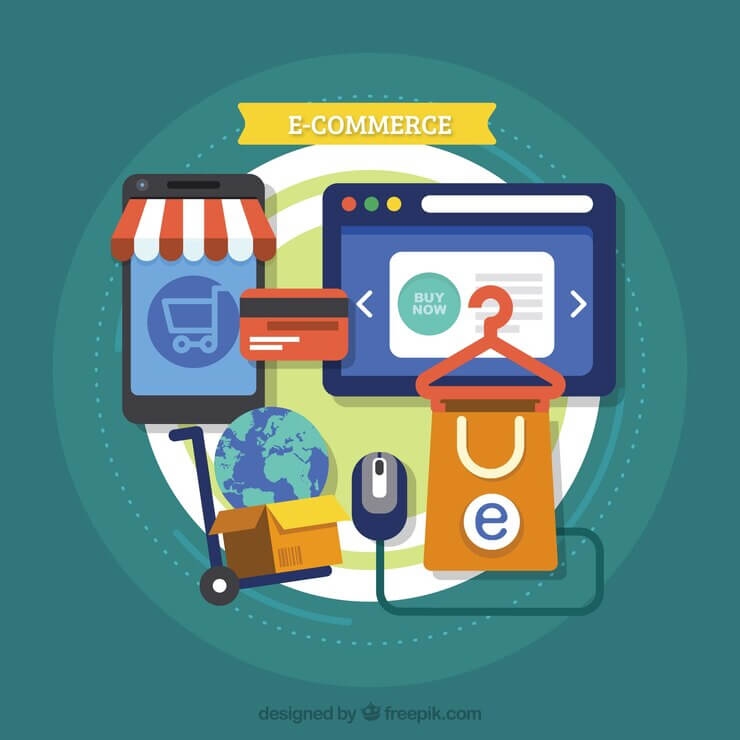

What Is a Payment Gateway?
A payment gateway is the technology that enables businesses to securely process online transactions. It acts as a bridge between customers and merchants, ensuring sensitive payment details — like card numbers — are encrypted and safely transmitted.
VELLIS NEWS
1 Apr 2025
By Vellis Team
Vellis Team
Automate your expense tracking with our advanced tools. Categorize your expenditures
Related Articles

Vellis News
27 March 2025
OpenCart vs Oscommerce Comparison; which eCommerce Platform is the Best for You
The modern e-commerce platform market is saturated with a plethora of options. Whether you are a newbie or an experienced e-commerce entrepreneur you have a critical decision to make the software that suits your needs.

Vellis News
27 March 2025
Top Ecommerce Platforms; Which One Is the Right for You
Are you planning to open an online store? The prosperity and success of your business are hinged on the performance and flexibility of the shopping cart you select. For this reason, picking the right e-commerce platform is an integral part of the puzzle and a significant aspect of any entrepreneur’s journey.

Vellis News
31 March 2025
Improve Digital Payments Experience Through Customer Feedback and Reviews
Enhancing payment experiences is crucial to high-risk payment processing. Through payment processor customer feedback, you will find out problems that you need to resolve to ensure smooth and secure transactions. This article will show you how to use reviews and feedback to make payments better.
How Does a Payment Gateway Work?
A payment gateway facilitates secure transactions by linking the customer’s bank with the merchant’s acquiring bank.
This system allows businesses to accept a variety of payment methods, including credit cards, debit cards, and even cryptocurrencies. With options like hosted and self-hosted gateways, businesses can choose the best solution for their needs. Let’s explore how a payment gateway works.
Here’s how it works step by step:
- Customer Initiation – A shopper enters their payment details when making a purchase through an online payment gateway.
- Encryption – The gateway encrypts the data to prevent unauthorized access.
- Authorization Request – The encrypted information is sent to the payment processor, which contacts the issuing bank to verify the transaction.
- Approval or Decline – The bank approves or denies the request based on available funds or credit limits.
- Completion – The merchant and customer receive confirmation, and the transaction is finalized.
Key Components Involved in Payment Processing
Understanding the key components involved in payment processing encourages users to explore how each plays a crucial role in successful transactions.
- Merchant – The business selling goods or services.
- Customer – The person making a payment using a debit/credit card or another method.
- Payment Gateway – The tool that securely transmits payment details for authorization.
- Payment Processor – Facilitates fund transfers between banks.
- Issuing Bank – The customer’s bank that approves or declines transactions.
- Acquiring Bank – The merchant’s bank that processes received payments.
Types of Payment Gateways
From hosted to self-hosted payment gateways, every type offers unique advantages for securely processing online transactions.
- Hosted Payment Gateways – Redirects customers to a secure external page for payment processing. Ideal for small businesses needing strong security with minimal compliance concerns.
- Self-Hosted Payment Gateways – Allows businesses to collect payment details on their own site, providing greater control over the checkout experience.
- API (Non-Hosted) Payment Gateways – Integrates directly into a business’s website for a seamless transaction process, requiring strict knowledge of what is PCI DSS compliance.
Benefits of Using a Payment Gateway
Using a payment gateway brings enhanced security to online transactions and streamlines the purchasing process, making shopping online faster and more convenient for users around the globe.
Security
A payment gateway encrypts sensitive data, protecting customer information from fraud and unauthorized access. Advanced fraud detection tools help prevent suspicious transactions.
Convenience
Customers can pay using their preferred method — credit card, debit card, or even cryptocurrency — making purchases faster and easier.
Speed
With instant transaction processing, online payment gateways reduce checkout times and improve user experience.
Global Reach
A payment gateway enables businesses to accept payments worldwide, handling different currencies and complying with international regulations.
Payment Gateway vs. Payment Processor
While both are essential for transactions, they serve different roles:
- Payment Gateway – Ensures secure transaction processing between customers and merchants.
- Payment Processor – Moves the funds from the customer’s account to the merchant’s account, working with banks to complete payments.
Common Challenges and Solutions
B2B payment processing often faces technical difficulties during gateway setups, highlighting the importance of selecting one with strong customer support.
Integration Issues
Setting up a payment gateway can be complex, requiring compatibility with different eCommerce platforms. Choosing a gateway with strong customer support simplifies the process.
Security Concerns
Maintaining PCI compliance and updating security measures is critical to preventing fraud. Businesses using self-hosted gateways must actively manage security protocols.
Transaction Failures
Failed payments can occur due to insufficient funds, incorrect card details, or network issues. Offering multiple payment options and ensuring a stable internet connection can help reduce failed transactions.
Future Trends in Payment Gateways
The future of payment gateways is shifting to leverage emerging technologies. Innovations such as artificial intelligence and blockchain will bolster transaction security and user-friendliness, with the growth in mobile payments necessitating flexible solutions.
Artificial Intelligence
AI enhances fraud detection by analyzing transaction patterns in real time. Machine learning continuously adapts to emerging threats, making online transactions safer.
Blockchain Technology
Blockchain introduces decentralized authentication, reducing fraud risks while increasing transparency. This innovation may lower transaction costs and improve efficiency.
Mobile Payments
With NFC and QR codes becoming standard, online payment gateways must support fast, secure mobile transactions.
Omni-Channel Integration
Seamless payment processing across online stores, mobile apps, and physical locations is essential for improving customer experience and expanding business reach.
A payment gateway is a crucial tool for businesses looking to offer secure, efficient, and global payment solutions. As technology advances, these gateways will continue to evolve, making transactions even safer and more seamless for businesses and consumers alike.
Frequently Asked Questions (FAQs)
What is a payment gateway in simple terms?
A payment gateway is a service that securely transmits payment information from a customer to a merchant’s bank, facilitating online transactions.
Is a payment gateway necessary for online businesses?
Yes, it enables secure and efficient processing of electronic payments, which is essential for online commerce.
How does a payment gateway ensure transaction security?
By encrypting sensitive data and complying with security standards like PCI DSS, it protects against fraud and data breaches.
Can a payment gateway accept multiple payment methods?
Yes, most gateways support various payment options, including credit/debit cards, digital wallets, and bank transfers.
What fees are associated with using a payment gateway?
Fees can include setup charges, monthly fees, and per-transaction costs, varying by provider.
References
Investopedia. (n.d.). What is a payment gateway? How it works and example. Retrieved from investopedia.com/terms/p/payment-gateway.asp
PCI Security Standards Council. (2023). PCI compliance and payment gateways. Retrieved from pcisecuritystandards.org/document_library

Ready to transform your financial management?
Sign up with Vellis today and unlock the full potential of your finances.
Related Articles

Vellis News
31 March 2025
Charting the Course: Payment Processors in High-Risk Sectors of Social Gaming
Social gaming, with its vibrant online community, presents unique payment processing challenges. The prevalence of virtual currency, global audiences, and digital fraud risks demand specialized payment solutions to ensure secure and seamless transactions for players. This article explores the essentials of safe and efficient payment processing tailored for social gaming.

Vellis News
1 April 2025
What Is a Payment Gateway?
A payment gateway is the technology that enables businesses to securely process online transactions. It acts as a bridge between customers and merchants, ensuring sensitive payment details — like card numbers — are encrypted and safely transmitted.

Vellis News
31 March 2025
An Overview of Secure E-Commerce Payment Methods for 2025
E commerce payment methods are essential for facilitating online transactions, ensuring security, and providing a seamless customer experience. With various options available—including credit and debit cards, digital wallets, bank transfers, Buy Now, Pay Later (BNPL) services, and cryptocurrency—businesses must carefully select the most suitable methods based on customer preferences, security, and operational costs.
We use cookies to improve your experience and ensure our website functions properly. You can manage your preferences below. For more information, please refer to our Privacy Policy.
© 2025 Vellis Inc.
Vellis Inc. is authorized as a Money Services Business by FINTRAC (Financial Transactions and Reports Analysis Centre of Canada) number M24204235. Vellis Inc. is a company registered in Canada, number 1000610768, headquartered at 30 Eglinton Avenue West, Mississauga, Ontario L5R3E7, Canada.

